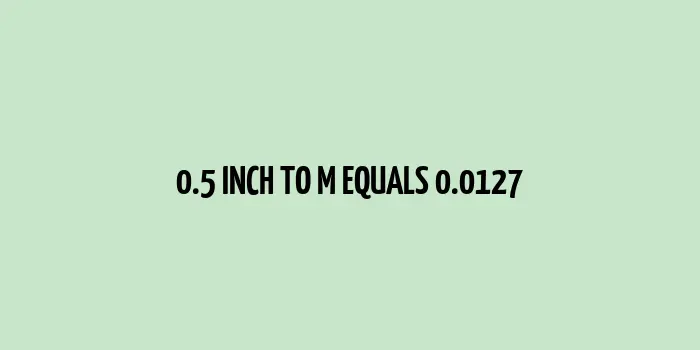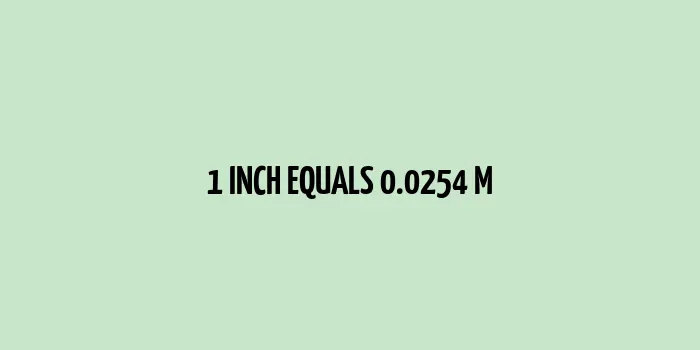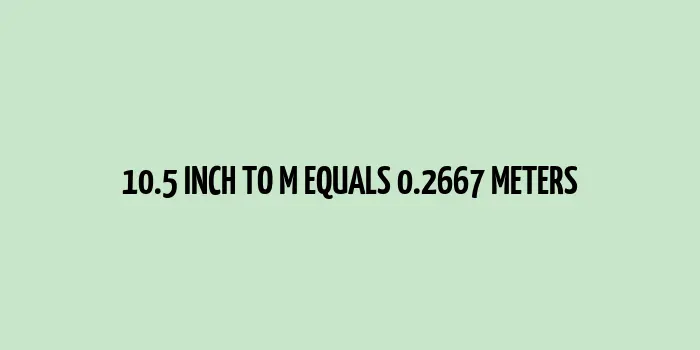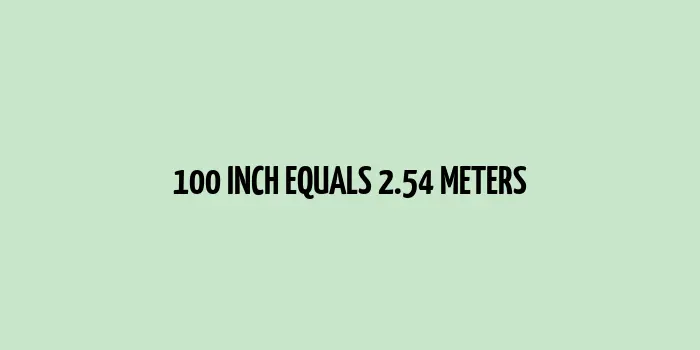1000 inch to m (Inches to Meters)
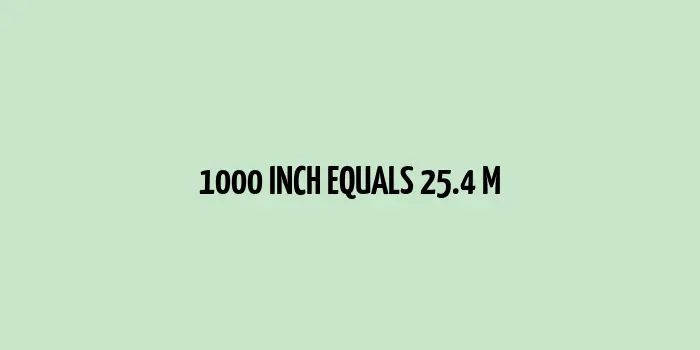
Let us understand the process of converting 1000 inch to m
1000 inches is equal to approximately 25.4 meters.
If you're puzzled about how to convert 1000 inches to meters, you're not alone. The metric system can appear intimidating, especially when faced with larger numbers. Thankfully, the conversion process is straightforward. Knowing this conversion is essential for various applications like construction, manufacturing, and more. Let's delve deeper into this topic while sprinkling in some useful statistics, analogies, and additional information for better understanding.
To convert inches to meters, you use a simple mathematical formula. Multiply the number of inches by 0.0254 to get the value in meters. For 1000 inches, it looks like this:
[ 1000 \text{ inches} \times 0.0254 \text{ meters/inch} = 25.4 \text{ meters} ]
This means 1000 inches is approximately 25.4 meters.
Consider this: if you imagine 1000 inches as the length of a medium-sized conference room in an office, converting that length to meters provides a clearer picture, especially when dealing with international teams that use the metric system.
Importance of Accurate Conversions
Accurate conversions from inches to meters are essential in diverse areas. For instance, in the construction industry, measurements are crucial. An error in conversion can lead to significant mistakes in the building process, which can cost both time and money. Similarly, in the manufacturing industry, parts designed with incorrect measurements can lead to product failures.
Notably, a 2018 study revealed that measurement errors contribute to about 10% of all construction defects. Accurate knowledge of conversions can reduce these errors.
Practical Applications
-
Construction Projects: Large scale constructions often require translating plan dimensions from one system to another. Using precise measurements ensures consistency and accuracy across international standards.
-
Manufacturing: When parts and components are designed and assembled, metric conversions ensure that parts fit perfectly, especially when sourced from different countries.
-
Education and Science: Students and professionals engage in projects that blend both imperial and metric systems, requiring seamless conversion for accuracy.
External Resources
For quick conversions, you may utilize online tools such as UnitConverters.net, which simplifies this task without manual calculations.
FAQs
How do I convert inches to meters without a calculator?
To convert inches to meters without a calculator, you can use mental math with an approximation method. Remember that 1 inch is about 0.025 meters. For 1000 inches, you multiply 1000 by 0.025, which gives you 25 meters. While slightly less accurate than using the exact factor of 0.0254, this method can be handy for quick estimates.
Why is converting from inches to meters important?
Converting from inches to meters is essential in fields using both imperial and metric systems, such as construction, engineering, and scientific research. Measurements need to be accurate to ensure compatibility and precision in work.
Is there an easy way to remember the conversion factor for inches to meters?
An easy way to remember is that 1 inch is roughly equal to 0.0254 meters. Think of the numeral 25 and then remember 4 as an afterthought. Or simply recall that multiplying by 0.025 gets you very close, for quick estimates.
By understanding and applying these conversions, you can ensure precision and accuracy in your projects, whether large or small. Accurate measurement conversion is fundamental to maintaining the integrity and success of any project that spans different measurement systems.
